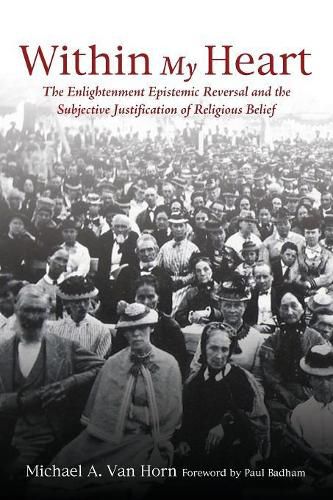Readings Newsletter
Become a Readings Member to make your shopping experience even easier.
Sign in or sign up for free!
You’re not far away from qualifying for FREE standard shipping within Australia
You’ve qualified for FREE standard shipping within Australia
The cart is loading…






This title is printed to order. This book may have been self-published. If so, we cannot guarantee the quality of the content. In the main most books will have gone through the editing process however some may not. We therefore suggest that you be aware of this before ordering this book. If in doubt check either the author or publisher’s details as we are unable to accept any returns unless they are faulty. Please contact us if you have any questions.
This book illustrates how Christianity in the modern era has been shaped in the direction of subjectivity. In the Enlightenment, after Locke required faith to submit to reason’s judgment, Kant argued that religion should remain within the bounds of reason only. Schleiermacher shifted attention away from belief to devotion to Christ and a feeling of absolute dependence on God. Rejecting Hegel’s system, Kierkegaard summoned his readers to a unique subjective approach to justification by faith. Revivalist Evangelicalism has been perceived, and portrayed itself, as a rejection of modernism. This study argues instead that the Evangelical-revivalist movement is unmistakably modern in its assumptions regarding the nature of faith. The Pietist impulse, fueled in part by modern anthropocentrism and subjectivism in religious belief, was appropriated by the Evangelical revivalists, such as John Wesley, George Whitefield, Jonathan Edwards, and, later, Charles Finney. In short, Christianity today is a religion of the heart.
$9.00 standard shipping within Australia
FREE standard shipping within Australia for orders over $100.00
Express & International shipping calculated at checkout
This title is printed to order. This book may have been self-published. If so, we cannot guarantee the quality of the content. In the main most books will have gone through the editing process however some may not. We therefore suggest that you be aware of this before ordering this book. If in doubt check either the author or publisher’s details as we are unable to accept any returns unless they are faulty. Please contact us if you have any questions.
This book illustrates how Christianity in the modern era has been shaped in the direction of subjectivity. In the Enlightenment, after Locke required faith to submit to reason’s judgment, Kant argued that religion should remain within the bounds of reason only. Schleiermacher shifted attention away from belief to devotion to Christ and a feeling of absolute dependence on God. Rejecting Hegel’s system, Kierkegaard summoned his readers to a unique subjective approach to justification by faith. Revivalist Evangelicalism has been perceived, and portrayed itself, as a rejection of modernism. This study argues instead that the Evangelical-revivalist movement is unmistakably modern in its assumptions regarding the nature of faith. The Pietist impulse, fueled in part by modern anthropocentrism and subjectivism in religious belief, was appropriated by the Evangelical revivalists, such as John Wesley, George Whitefield, Jonathan Edwards, and, later, Charles Finney. In short, Christianity today is a religion of the heart.